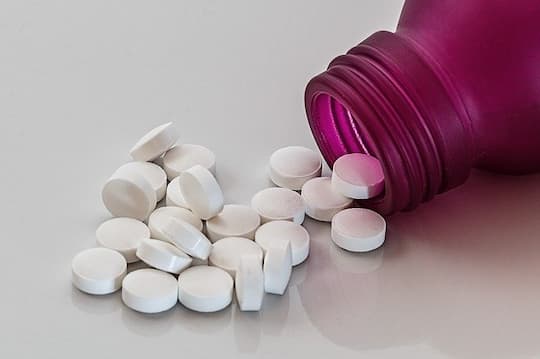Cheap supplements could help to fight opioid addiction.
Vitamin D deficiency may exaggerate the desire for opioids, so increasing the risk of addiction, a study finds.
It suggests that simple and cheap vitamin D supplements could help to fight opioid addiction.
The study found that mice with a vitamin D deficiency more easily became addicted to morphine, a type of opioid.
When the morphine was taken away from them, those with vitamin D deficiency suffered more withdrawal symptoms.
An analysis of health records also showed that humans with a severe vitamin D deficiency are 90 percent more likely to use opioids than those with normal vitamin D levels.
Similarly, those deficient in vitamin D are more likely to be diagnosed with an opioid use disorder.
Dr Lajos V. Kemény, the study’s first author, said:
“Our goal in this study was to understand the relationship between vitamin D signaling in the body and UV-seeking and opioid-seeking behaviors.”
Why humans are sunseekers
The study was inspired by the question of why human beings seek out sunshine when it is potentially so bad for the skin.
Exposure to the sun is the primary cause of skin cancer and ages the skin prematurely.
One answer is that sunshine is necessary for the production of vitamin D in the body.
Without it, people are at risk of weak bones and a host of other health conditions.
When the sun strikes the skin, not only does it help the body manufacture vitamin D, it also produce endorphins.
Endorphins, which make people feel good, are chemically related to morphine, heroine and other opioids.
All these compounds activate the same receptors in the brain.
So, people seek out the sun not just because the body needs to produce vitamin D, but also because they want the feel-good rush of endorphins.
Vitamin D and addiction
These ideas led to the current mouse study, which tested the effects of vitamin D deficiency on their addictive behaviours.
Dr Kemény said:
“We found that modulating vitamin D levels changes multiple addictive behaviors to both UV and opioids.”
Professor David E. Fisher, study co-author, said:
“When we corrected vitamin D levels in the deficient mice, their opioid responses reversed and returned to normal.
Our results suggests that we may have an opportunity in the public health arena to influence the opioid epidemic.”
The study was published in the journal Science Advances (Kemény et al., 2021).

